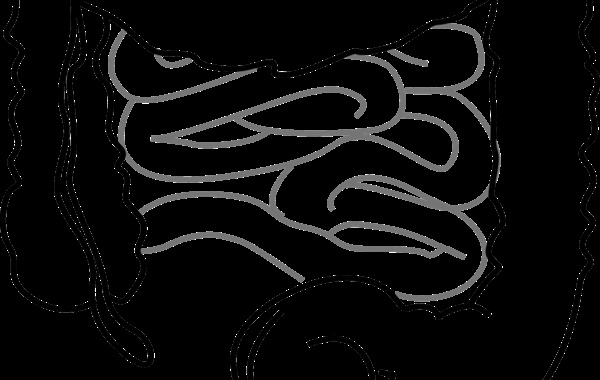In a research printed Feb. 3 in Cell Host and Microbe, the investigators confirmed that sufferers with Crohn’s disease have an overabundance of a kind of intestine bacteria known as adherent-invasive Escherichia coli (AIEC), which promotes irritation within the gut. Their experiments revealed {that a} metabolite produced by the bacteria interacts with immune system cells within the lining of the gut, triggering irritation. Interfering with this course of, by both decreasing the bacteria’s meals provide or eliminating a key enzyme within the course of relieved intestine irritation in a mouse mannequin of Crohn’s disease.
“The research reveals a therapeutically targetable weak level within the bacteria,” mentioned senior writer Dr. Randy Longman, affiliate professor of drugs within the Division of Gastroenterology and Hepatology and the Director of the Jill Roberts Middle for Inflammatory Bowel Disease at Weill Cornell Drugs and NewYork-Presbyterian/Weill Cornell Medical Middle.
To seek out this “Achilles heel,” Dr. Longman and his colleagues, together with Drs. Ellen Scherl and Chun-Jun Guo at Weill Cornell Drugs and collaborators Dr. Gretchen Diehl at Memorial Sloan Kettering and Dr. Kenneth Simpson at Cornell’s Ithaca campus, focused a course of the AIEC bacteria makes use of to convert a byproduct of sugar fermentation within the intestine to develop. Particularly, the AIEC makes use of 1,2-propanediol, a byproduct of the breakdown of a kind of sugar known as fucose that’s discovered within the lining of the intestines. When the AIEC converts 1,2-propanediol, it produces propionate, which the research confirmed interacts with a kind of immune system cell known as mononuclear phagocytes which can be additionally discovered within the lining of the intestine. This units off a cascade of irritation.
Subsequent, the investigators genetically engineered AIEC bacteria to lack a key enzyme on this course of known as propanediol dehydratase. With out propanediol dehydratase, the bacteria don’t set off a cascade of irritation in a mouse mannequin of Crohn’s disease. Decreasing the obtainable provide of fucose within the animal’s intestine additionally decreased irritation.
“Altering one metabolic pathway in a single sort of bacteria can have a big effect on intestinal irritation,” mentioned the research’s co-lead writer Dr. Monica Viladomiu, a post-doctoral affiliate in drugs within the Division of Gastroenterology and Hepatology and within the Jill Roberts Institute for Analysis in Inflammatory Bowel Disease at Weill Cornell Drugs. Maeva Metz, a Weill Cornell Drugs Graduate Faculty of Medical Sciences doctoral candidate in Dr. Longman’s laboratory, can also be co-lead writer.
The invention may lead to higher therapies for Crohn’s disease, a kind of inflammatory bowel disease that impacts greater than 4 million individuals worldwide. At present, sufferers with Crohn’s disease are sometimes handled with antibiotics, which might kill each useful and dangerous bacteria inflicting undesirable negative effects. However therapies that exactly goal the inflammatory cascade found by Dr. Longman and colleagues would possibly assist scale back irritation whereas preserving useful bacteria.
“If we are able to develop small molecule medicine that inhibit propanediol dehydratase or use dietary modifications to scale back the provision of fucose, we might give you the chance to scale back intestinal irritation in sufferers with Crohn’s disease with fewer negative effects,” mentioned Dr. Longman, who can also be a member of the Jill Roberts Institute for Analysis in Inflammatory Bowel Disease.
One of the following steps for the workforce will likely be testing potential therapies. In addition they plan to research the potential position of an enzyme known as fucosyltransferase 2 in defending the intestine towards this inflammatory cascade. Dr. Longman defined that many sufferers with Crohn’s disease have mutations within the gene that encodes this enzyme, rendering it nonfunctional.
“From a medical perspective, that’s fascinating as a result of it might assist us stratify individuals for whom one intervention or one other possibly extra helpful,” Dr. Longman mentioned.
Supply: https://medicalxpress.com/
Study identifies ‘Achilles heel’ of bacteria linked to Crohn’s disease
Dikkat: Sitemiz herkese açık bir platform olduğundan, çox fazla kişi paylaşım yapmaktadır. Sitenizden izinsiz paylaşım yapılması durumunda iletişim bölümünden bildirmeniz yeterlidir.
Supply: https://www.bizsiziz.com/study-identifies-achilles-heel-of-bacteria-linked-to-crohns-disease/



